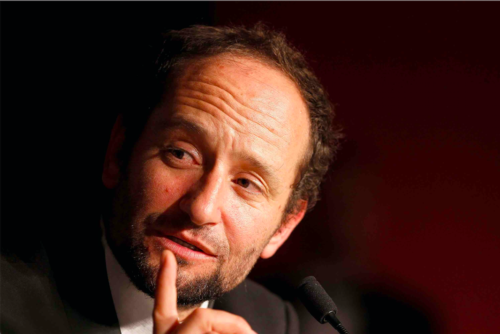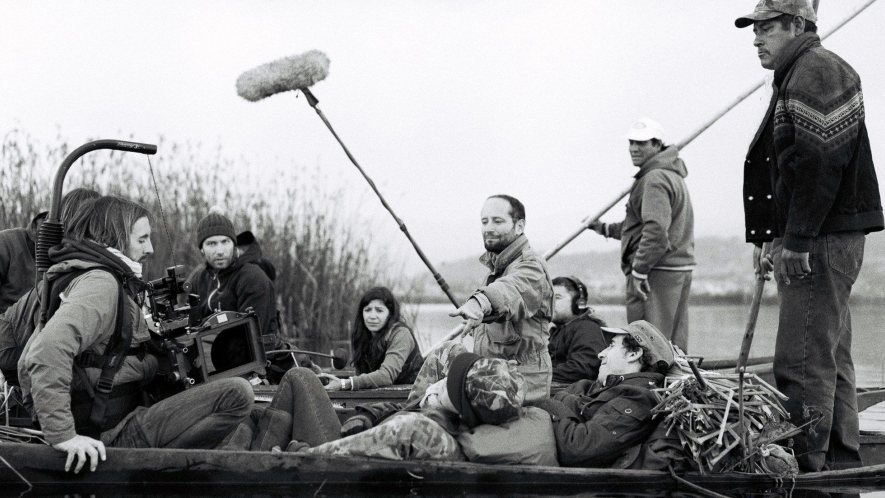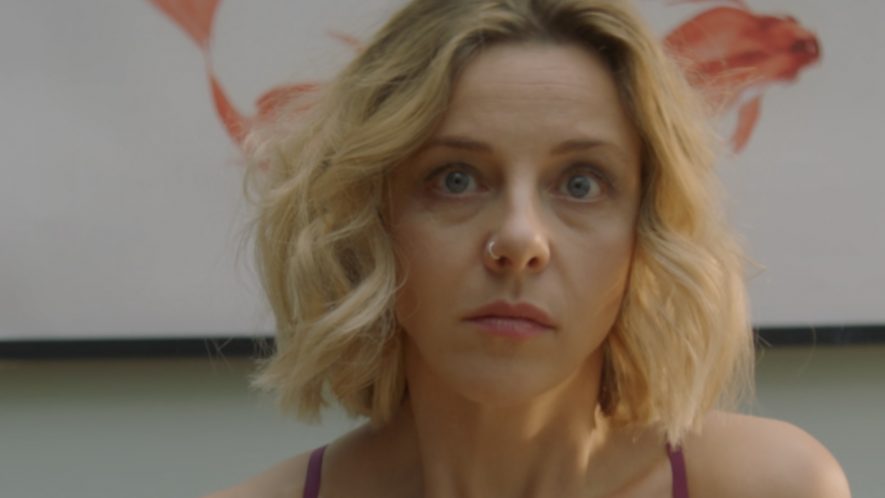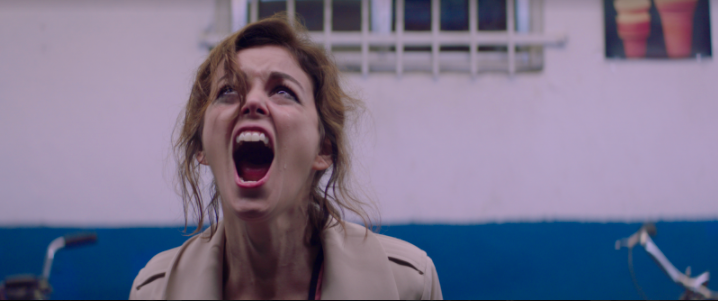ARGO Interview with Carlos Reygadas
“Cinema is graphic literature, literature without words, but literature all the same, with all its mechanisms.”
We had a chance to interview famed Mexican-director, writer and producer, Carlos Reygadas. Reygadas employs long takes and wide shots to create a transcendental experience in his philosophically-charged arthouse films. His feature-length film, Japón (2002), was presented at the Rotterdam Film Festival and received a special mention for the Caméra d’Or award at the 2002 Cannes Film Festival. Watch 4 mind-wracking films by Reygadas now on ARGO 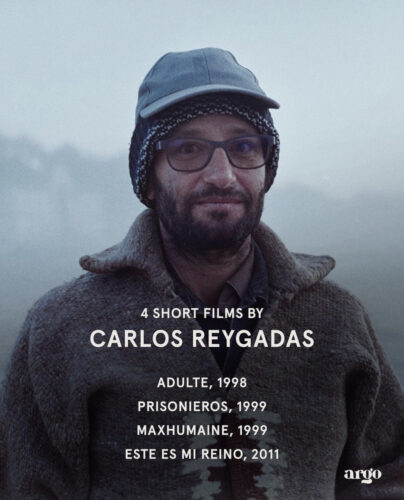 Here’s the conversation between Argo’s Ayah Bazian and Carlos Reygadas: AYAH: How has your confidence and self-expression evolved from the beginning of your career to today? REYGADAS: I’ve always been propelled firstly by intuition –not reason. I know that better now. Now I am not as reckless, which is not necessarily good. AYAH: You often talk about cinema as literature. How often do you embrace this perspective? How does the ‘cinema as literature’ philosophy differ when you move from writing to directing? REYGADAS: I say most of cinema is graphic literature, literature without words, but literature all the same, with all its mechanisms. But the cinema which I appreciate (unfortunately very unpopular in our days) does not work like literature, organizing symbols for information, but rather like presence, building just a possibility of meaning. This is also the way we perceive our lives in this world, we make some meaning out of it knowing there is no one pulling strings behind for each of our impressions. –Writing in film is just a tool for the making of a film. Not an end.
Here’s the conversation between Argo’s Ayah Bazian and Carlos Reygadas: AYAH: How has your confidence and self-expression evolved from the beginning of your career to today? REYGADAS: I’ve always been propelled firstly by intuition –not reason. I know that better now. Now I am not as reckless, which is not necessarily good. AYAH: You often talk about cinema as literature. How often do you embrace this perspective? How does the ‘cinema as literature’ philosophy differ when you move from writing to directing? REYGADAS: I say most of cinema is graphic literature, literature without words, but literature all the same, with all its mechanisms. But the cinema which I appreciate (unfortunately very unpopular in our days) does not work like literature, organizing symbols for information, but rather like presence, building just a possibility of meaning. This is also the way we perceive our lives in this world, we make some meaning out of it knowing there is no one pulling strings behind for each of our impressions. –Writing in film is just a tool for the making of a film. Not an end. 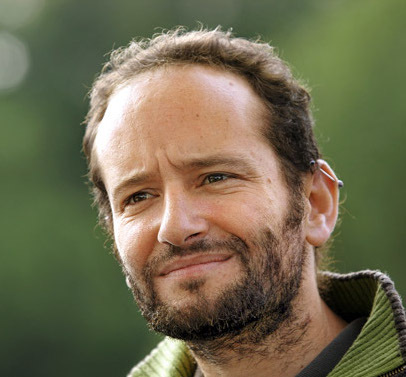 AYAH: Your cinema is personal and intimate, often highlighting qualities many would consider ‘unattractive.’ How important is it to you to be a creator who reveals his fears and insecurities? REYGADAS: I am not sure that is my process. I don’t mind what I reveal. I want to make good films if possible, that’s all. AYAH: In your short ”Este es mi Reino”, How much interaction did you have with the subjects? What was the intention behind bringing them all together? How free were they in their performances? REYGADAS: I planned and then ate and drank alcohol. It was all an experiment, a social one I guess. Everybody was as free as a bird. AYAH: Tell me about the title too, What does- ”Este es mi Reino”- mean to you? REYGADAS: Well, that’s more or less the life I know…
AYAH: Your cinema is personal and intimate, often highlighting qualities many would consider ‘unattractive.’ How important is it to you to be a creator who reveals his fears and insecurities? REYGADAS: I am not sure that is my process. I don’t mind what I reveal. I want to make good films if possible, that’s all. AYAH: In your short ”Este es mi Reino”, How much interaction did you have with the subjects? What was the intention behind bringing them all together? How free were they in their performances? REYGADAS: I planned and then ate and drank alcohol. It was all an experiment, a social one I guess. Everybody was as free as a bird. AYAH: Tell me about the title too, What does- ”Este es mi Reino”- mean to you? REYGADAS: Well, that’s more or less the life I know…
“Everybody was free as a bird”
AYAH: You often work with non-professional actors, people from the city, the countryside, all kinds, really. How do you recognize what each human carries inside, and then connect them to each other? How would you describe your process of directing them? REYGADAS: I just have a simple intuition. A bit like we choose partners, I guess. If the casting is correct (which is not always the case) then I just ask the actors to say this here or there. 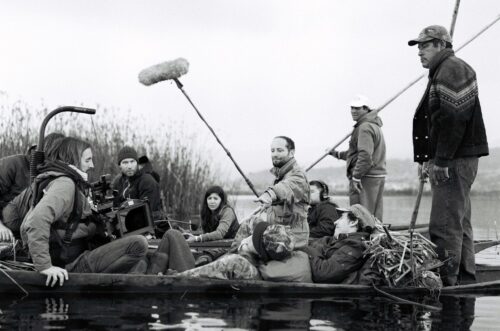 AYAH: What contemporary filmmakers or filmmakers of the past do you identify with and why? REYGADAS: I admire Aki Kaurismaki among many others. I guess he makes films with his own vision –and very good taste. AYAH: Your films are quite existential, and have much to do with the soul, sex, death, pain, psychedelics, and Mexico. “Nuestro Tiempo,” for example, teaches us to understand human challenges as universal, transcending social and cultural boundaries. How do you ensure your films cut to the chase and encompass the idea of what it is to be human? REYGADAS: I don’t know. I make films about the things that interest me. That’s all.
AYAH: What contemporary filmmakers or filmmakers of the past do you identify with and why? REYGADAS: I admire Aki Kaurismaki among many others. I guess he makes films with his own vision –and very good taste. AYAH: Your films are quite existential, and have much to do with the soul, sex, death, pain, psychedelics, and Mexico. “Nuestro Tiempo,” for example, teaches us to understand human challenges as universal, transcending social and cultural boundaries. How do you ensure your films cut to the chase and encompass the idea of what it is to be human? REYGADAS: I don’t know. I make films about the things that interest me. That’s all.
“Soul, Sex, Death Pain, Psychedelics and Mexico”
AYAH: Throughout your career, you have often returned to short form as a means of expression. What dictates the choice creating a short or feature film? REYGADAS: The feature permits a deeper trek. A short is more about a sparkle. They’re both necessary. 